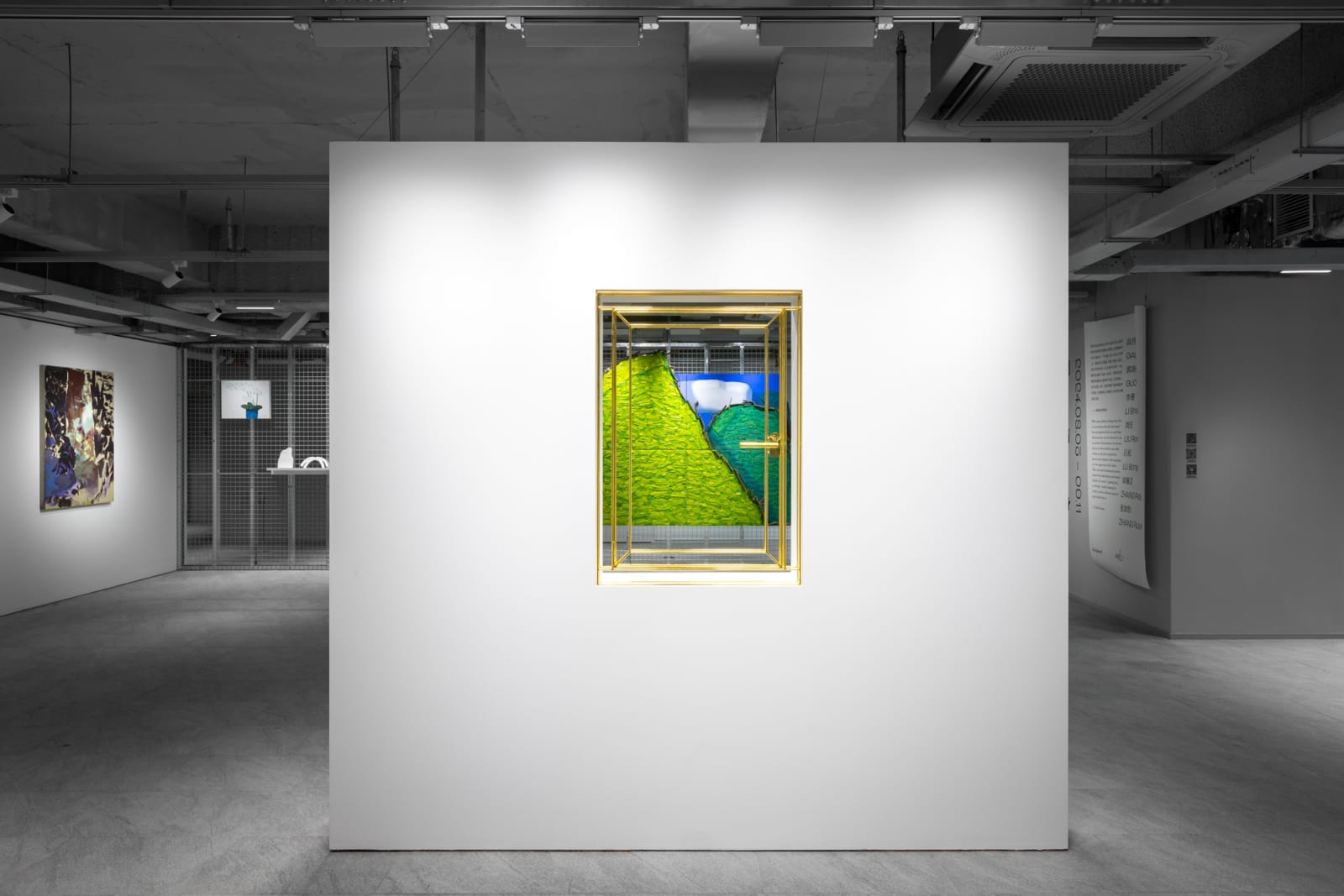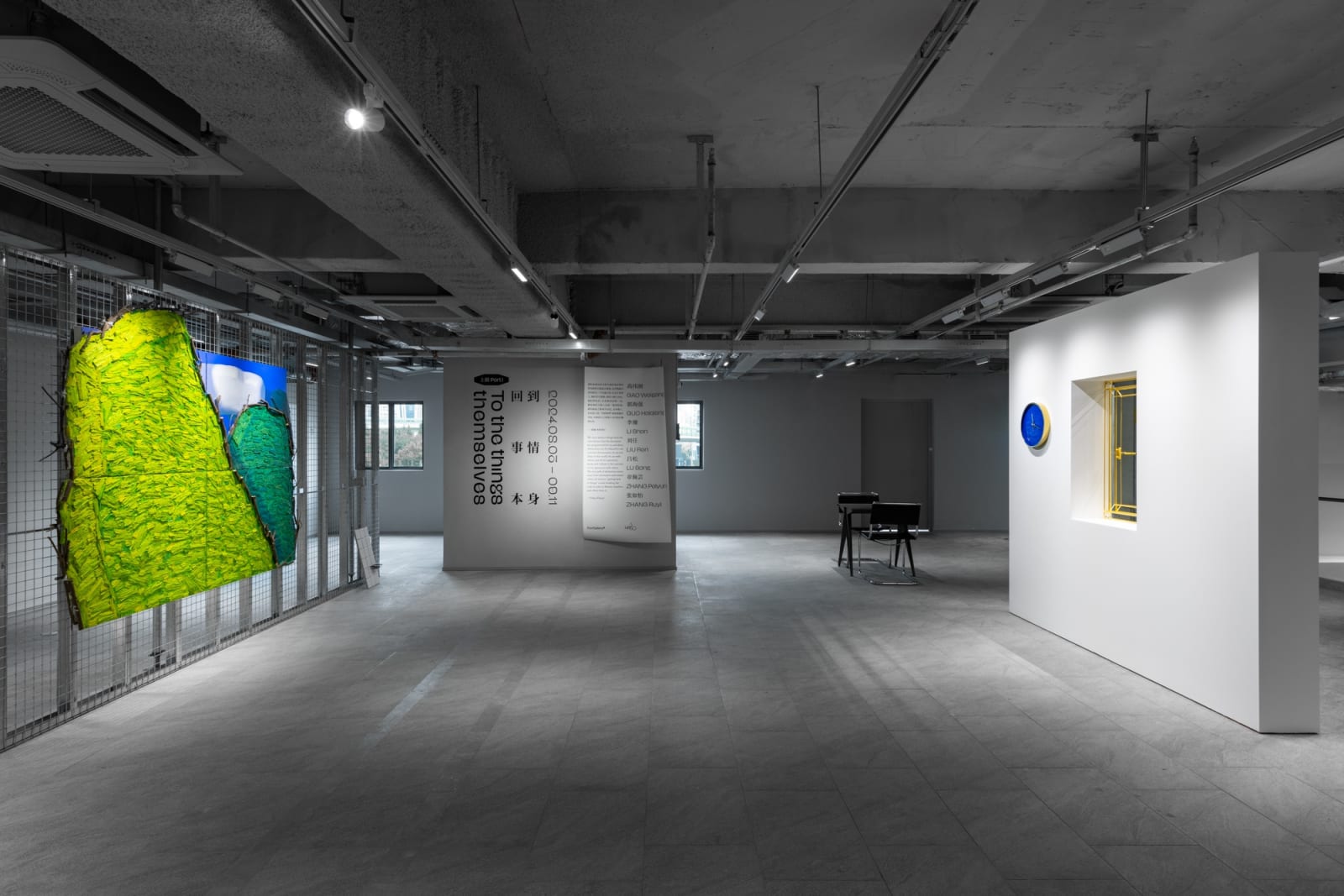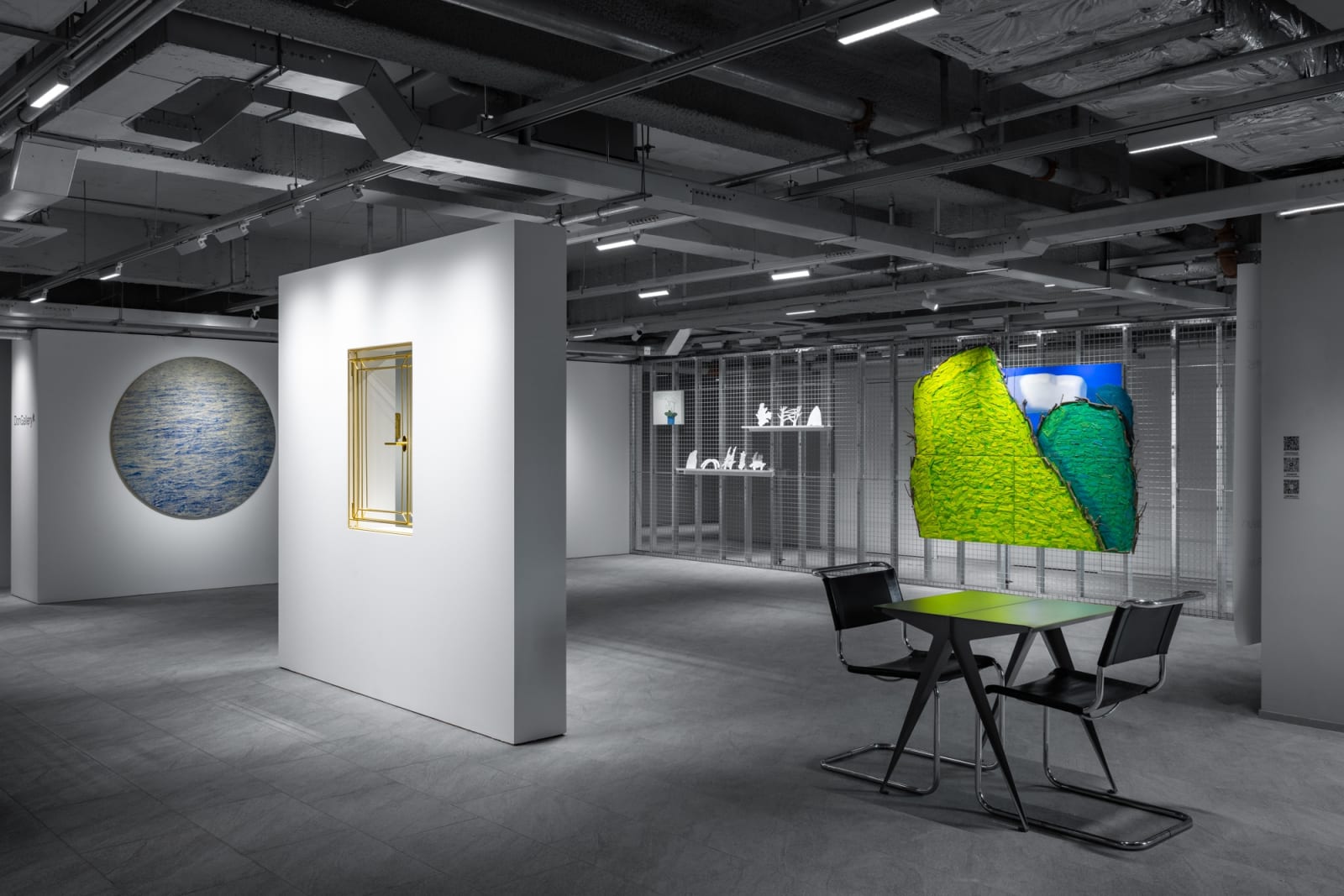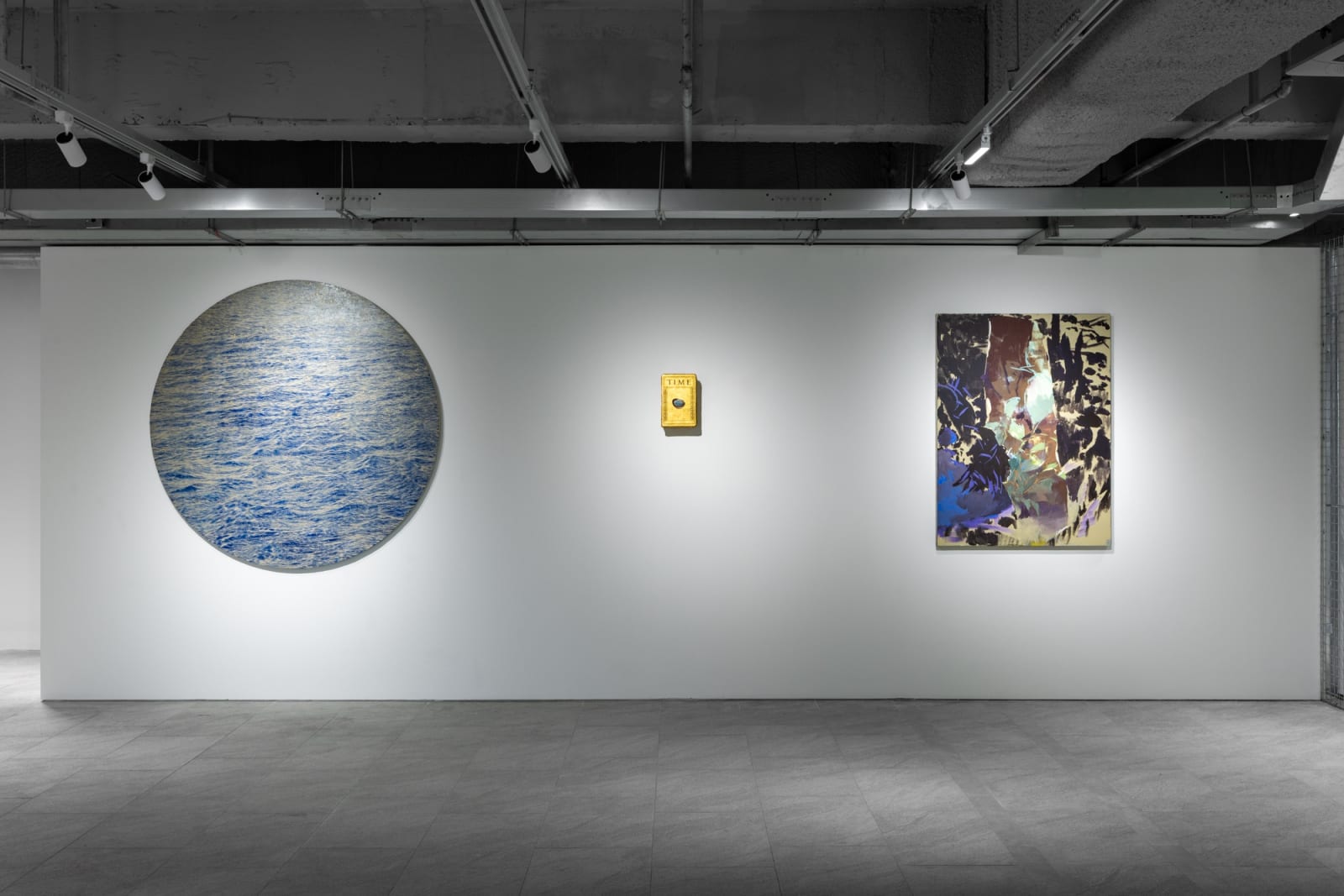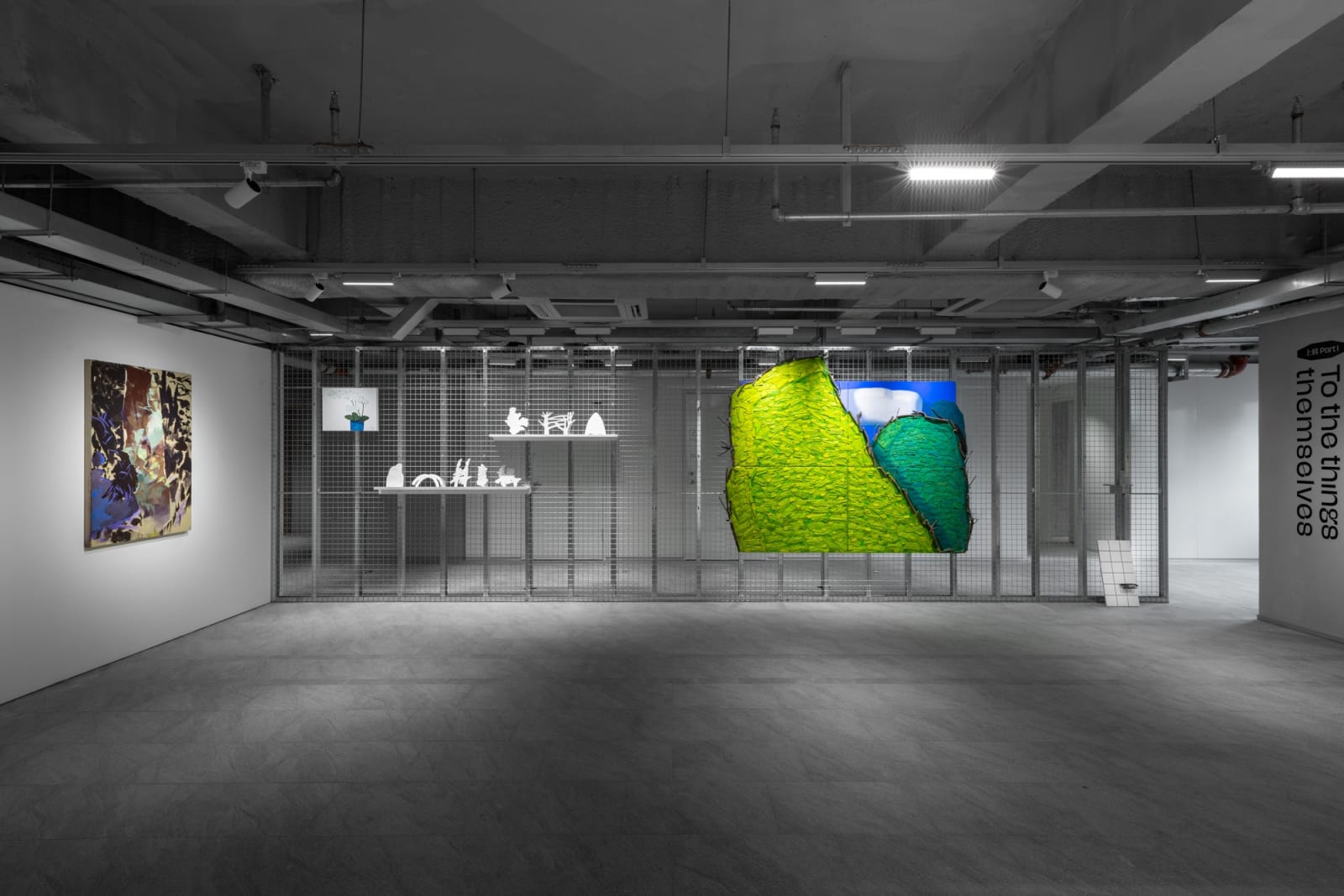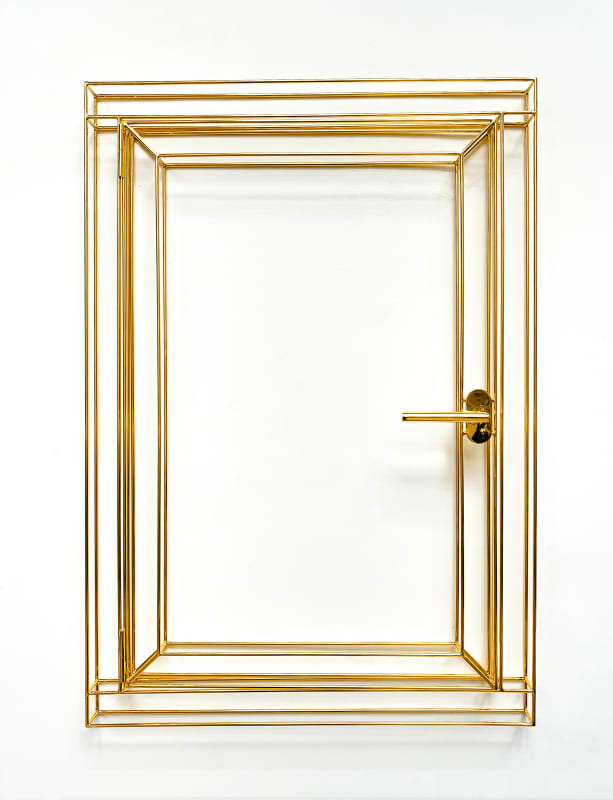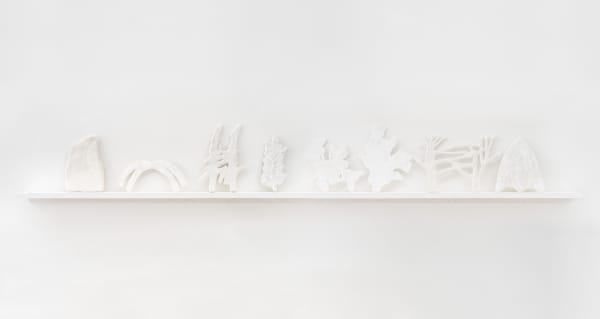To the Things Themselves Part I: Group Exhibition
Don Gallery Summer Pop-Up Exhibition
「To the Things Themselves」
PART I: 3 August – 22 August, 2024
PART II: 23 August – 11 September, 2024
HAI 550 L6-05, No.550 Huaihai Road, Huangpu District, Shanghai
We must abstract things from the concreteness that the document has programmed for us, and these abstractions can be reduced to one common denominator: we are not alone in this world; we are with others, and all we experience, know, and evaluate is the outcome of our agreement with others. The new path of abstraction moves away from information and toward others. In essence, "getting back to things" entails breaking the code in order to liberate ourselves and others from it.
——Vilém Flusser
With great pleasure, Don Gallery announces a special curatorial experiment in the soon-to-be L6-05 space at HAI550 mall. Under the title "To the Things Themselves," the five-week pop-up exhibition will leap out of the conventional white-box spatial framework and reflect on people's interest in and relationships with information, items, and others in the ultra-flat digital era in the context of real consumer scenario. Through their interventions in various mediums and materials, over ten artists will abstract the tangible interaction between objects and people from the exact theme, guiding us "to the thing themselves" and rebuilding and restoring the intimacy of everyday life. The show, which is slated to open on August 3, 2024 and continue through August 22, will include recent pieces by GAO Weigang, GUO Haiqiang, LI Shan, LIU Ren, LU Song, ZHANG Peiyun, and ZHANG Ruyi from the previous series.
In his book "Non-things: Upheaval in the Lifeworld" from 2021, Byung-Chul Han criticises digital capitalism and laments the current status of the digital age, which is fixated on "hyperproduction" and "hyperconsumption," from the standpoint of information as "non-objects." We are progressively losing our relationship with the Other, both human and physical. Real contact and human interaction are replaced by the tap of a finger on a smartphone, and our need for transient virtual knowledge is heightened by big data's algorithmic precision and endlessly available short-form video platforms, which generate streams of image commodities that provide quick answers. We are becoming more and more engaged in consuming knowledge, as noted by Flussell, and less and less interested in possessing things. As "non-objects" increasingly make up people's environs instead of "objects", taking back control of the "lifeworld" has become an urgent existential issue…
-
 Weigang GAOOPEN, 2023Stainless steel, gold 不锈钢电镀24K金100 x 70 x 20 cmEdition of 9 plus 1 AP
Weigang GAOOPEN, 2023Stainless steel, gold 不锈钢电镀24K金100 x 70 x 20 cmEdition of 9 plus 1 AP -
 Weigang GAOOPEN, 2023Stainless steel, gold 不锈钢, 不锈钢电镀24K金106 x 76 x 25 cmEdition of 9 plus 1 AP
Weigang GAOOPEN, 2023Stainless steel, gold 不锈钢, 不锈钢电镀24K金106 x 76 x 25 cmEdition of 9 plus 1 AP -
 GUO Haiqiang2022.4.11, 2022Oil on canvas, branch and jute fibre 布面油彩、树枝和黄麻丝187 × 245 cmUnique 唯一版本
GUO Haiqiang2022.4.11, 2022Oil on canvas, branch and jute fibre 布面油彩、树枝和黄麻丝187 × 245 cmUnique 唯一版本 -
 LI ShanPhalaenopsis 蝴蝶兰, 2022Oil on canvas 布上油画
LI ShanPhalaenopsis 蝴蝶兰, 2022Oil on canvas 布上油画
Framed 有画框40 × 50 cm -
 LIU RenCuts in Passing - Crows Cawing at Night . Last Night was Windy and Rainy (LI Yu) 锋利划过-乌夜啼.昨夜风兼雨 (李煜), 2022Oil, straw paper, and ready-made object 油彩、草纸、现成品35.2 × 35.2 cm (36.8 × 36.8 × 4.3 cm with frame 含框)
LIU RenCuts in Passing - Crows Cawing at Night . Last Night was Windy and Rainy (LI Yu) 锋利划过-乌夜啼.昨夜风兼雨 (李煜), 2022Oil, straw paper, and ready-made object 油彩、草纸、现成品35.2 × 35.2 cm (36.8 × 36.8 × 4.3 cm with frame 含框) -
 LIU RenPantaRhei-202401271642, 2024Silk screening on straw paper, gold foil 丝网草纸、金箔⌀ 150 cmUnique 唯一版本
LIU RenPantaRhei-202401271642, 2024Silk screening on straw paper, gold foil 丝网草纸、金箔⌀ 150 cmUnique 唯一版本 -
 LIU RenOpenAI 开放人工智能研究中心, 2024Oil on straw paper, gold foil 油彩在草纸上、金箔27.5 × 17.5 × 11 cm
LIU RenOpenAI 开放人工智能研究中心, 2024Oil on straw paper, gold foil 油彩在草纸上、金箔27.5 × 17.5 × 11 cm -
 LU SongTheater #12 剧场 #12, 2022Acrylic on canvas 布面丙烯120× 90 cm
LU SongTheater #12 剧场 #12, 2022Acrylic on canvas 布面丙烯120× 90 cm -
 ZHANG PeiyunIn The Garden #7 在园中 #7, 2022Concrete 水泥dimensions variable 尺寸可变
ZHANG PeiyunIn The Garden #7 在园中 #7, 2022Concrete 水泥dimensions variable 尺寸可变 -
 ZHANG RuyiSoap– 3 香皂─ 3, 2017Concrete, soap holder, tiles 混凝土、香皂架、瓷砖9 x 5.5 x 2 cm (soap 香皂), 12.7 x 8.4 x 3.5 cm (soap holder 香皂架), 60 x 30 cm (tiles 瓷砖)
ZHANG RuyiSoap– 3 香皂─ 3, 2017Concrete, soap holder, tiles 混凝土、香皂架、瓷砖9 x 5.5 x 2 cm (soap 香皂), 12.7 x 8.4 x 3.5 cm (soap holder 香皂架), 60 x 30 cm (tiles 瓷砖)


